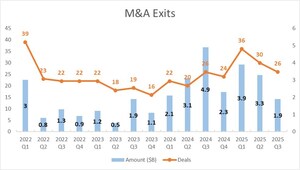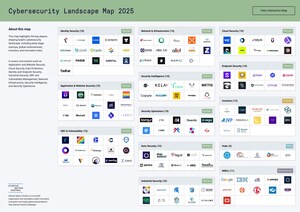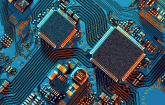Based on data from the Startup Nation Finder business engagement platform, the report outlines Israel's "two-engine" model combining high-impact startups with multinational R&D hubs to drive core chip innovation for the world's leading technology companies. Israeli teams design central technologies such as Intel's Gaudi AI processors, Amazon's Graviton CPUs and Nitro networking systems, and Nvidia's data center interconnects.
"Israel's semiconductor ecosystem has evolved into a global R&D powerhouse," said Avi Hasson, CEO of Startup Nation Central. "Our engineers design the chips that power AI, cloud infrastructure, and defense systems. The next step is to grow companies that scale independently rather than sell early.
Over the past decade, for every $5 invested in US semiconductor startups, $1 was invested in Israeli companies, a ratio of 1:5, compared to the overall 1:15 ratio between Israeli and U.S. VC investment volumes. This remarkable figure highlights the strategic weight of Israel's chip sector and its strong alignment with global capital trends.
The report identifies more than 250 active semiconductor companies, representing about 3.5% of Israel's technology ecosystem. While the number of firms has grown 16% over the past decade, the sector is entering a phase of consolidation, with activity shifting from rapid expansion to stable, capital-intensive growth.
Funding remains resilient. Following a record $1.2 billion raised in 2021, annual private investment has stabilized at $0.4–0.5 billion. Median round sizes are two to four times higher than the national tech average, reaching $35 million in 2025, supported by major financings such as Quantum Machines ($170M) and Retym ($75M).
M&A continues to define the sector's global integration. Key deals include Intel's $15.3B purchase of Mobileye, Nvidia's $6.9B acquisition of Mellanox, and KLA's $3.4B acquisition of Orbotech, embedding Israeli innovation into the global supply chain.
The industry is estimated to employ about 45,000 people, or 9% of Israel's tech workforce, with major employers such as Intel (9,300 employees) and Nvidia (5,500 employees) maintaining large local footprints. Unlike Israel's software sector, semiconductor facilities are spread nationwide, supporting both regional growth and workforce diversity. This distributed strength highlights both the depth and the paradox of Israel's semiconductor ecosystem. While multinational corporations continue to expand their R&D operations, the pace of new company creation has slowed, illustrating the delicate balance between global integration and local entrepreneurship.
"The ecosystem's reliance on exits, combined with high operational costs, has slowed new startup formation," said Yariv Lotan, VP of Product and Data at Startup Nation Central. "Its central challenge now is to evolve from a 'build to exit' mindset toward a 'build to last' model."
The 2025 Semiconductor Landscape Map segments Israeli innovation across the full value chain, including materials, manufacturing, logic and memory ICs, interconnect and networking, and sensing technologies.
Explore the 2025 Semiconductor Landscape Map and full report on Startup Nation Finder
About Startup Nation Central
Startup Nation Central helps global solution seekers tackle complex challenges by giving them frictionless access to Israel's problem solvers and their bold, determined approach to innovation. We call this Impatient Innovation. Finder, our free business engagement platform, delivers real-time data and insights on Israel's tech ecosystem, creating opportunities and connecting startups with investors, corporates, and governments worldwide. For more information, visit https://startupnationcentral.org.
Photo: https://mma.prnewswire.com/media/2818584/Semiconductors_sector_landscape_map.jpg
SOURCE Startup Nation Central









Share this article